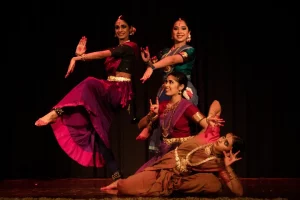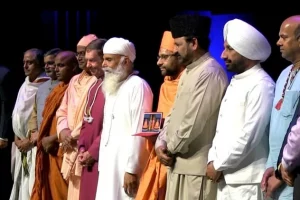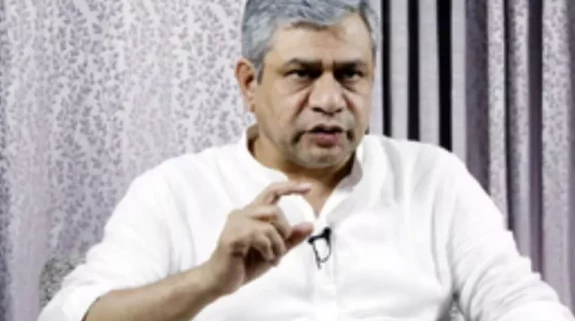Creating fissures is easy while identifying unifying elements is tough. Take the latest example of Muslim YouTube singer Farmani Naaz been criticised by Muslim clerics from Deoband for singing a bhajan in praise of Lord Shiva — a move which strikes at the very heart of India’s ancient syncretic culture.
Naaz was taken to task for having rendered a popular bhajan “Har Har Shambhu”, a song which was originally sung by Abhilipsa Panda and Jeetu Sharma.
The entire criticism falls flat when one considers that the 1952 box office success Hindi film “Baiju Bawra”, had among its superhit songs one classic bhajan “Man Tarpat Hari Darshan Ko Aaj”. The three main contributors of this song were Shakeel Badayuni who wrote the lyrics; Naushad Ali who composed it on raga Malkauns; and last but not the least, the playback singer, Mohammed Rafi who sang it. All Muslims whose devotion was not questioned because of their creativity.
This bhajan continues to be extremely popular even today and is often played on radio and television channels. Having just come out of the trauma and tragedy of Partition, neither the Hindus nor the Muslims criticised the trio. In fact, this song is the shining beacon of how creativity, music and singing transcends man-made boundaries of religion and enters the domain of spirituality.
Naaz too sang “Har Har Shambhu” and this version was uploaded on her YouTube channel about a week ago. This bhajan was played extensively during Kanwar Yatra and became a hit with Lord Shiva’s devotees.
Now, she has been condemned by the Muslim clerics stating that it went against the tenets of Islam. Deoband-based Mufi Asad Qasmi told ANI agency: “Singing or dancing is ‘Haram’ in Islam. Sharia does not allow this. This is Haram. She should seek forgiveness from Allah.”
Another cleric, Maulana Ishaq Gora again from Deoband said: “Farmani Naz is a singer who can sing who is stopping her, there is no fatwa issued against her. But I would like to say that our religion does not permit bhajans for other religions. This is against Shariat as well as tenets of Islam.”
Mohd Rafi and Naushad during the live performance of bhajan “mann tadpat hari darshan ko aaj”, from ‘Baiju Bawra’, written by Shakeel Badayuni. pic.twitter.com/EDt78OgYSz
— Film History Pics (@FilmHistoryPic) May 17, 2022
A resident of Uttar Pradesh’s Ratanpuri area in Muzaffarnagar, Naz was ill-treated by her husband and returned to her village Mohammadpur Maafi. There, impressed by her singing, her voice was uploaded by a youth. In 2021 she participated in Indian Idol Season 12.
With a following of 3.8 million on YouTube, singing is her main source of income and for the upkeep of her son. She had earlier released a song praising Prime Minister Narendra Modi and UP Chief Minister, Yogi Adityanath.
Talking to the agency about the criticism, Naz said: “Artists have no religion. I forget everything else when I sing. I even sing qawwali. Even Mohd Rafi and Master Saleem sang devotional songs. I’ve never received a threat. There’s a little controversy now, we came to know but nobody has come to our house to say anything.”
India unlike many countries has upheld ‘Sarva Dharma Sama Bhava’ emphasising the equality of all religions, can rightfully take pride in the fact that a Atif Aslam’s tribute to Sabri Brothers “Tajdar-e-Haram” at Coke Studio was liked by thousands from India, of which many were not Muslims but belonged to other denominations. India's civilizational syncretic culture, which got a fresh lease of life with Sufi saints pitching in may now need another high octane lift.
Also read: Doval flags movement to foster communal harmony with Indian roots




















